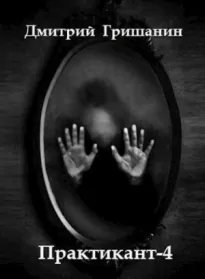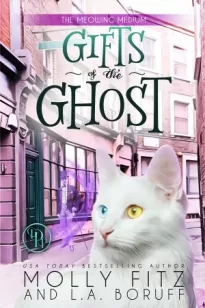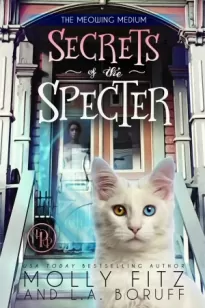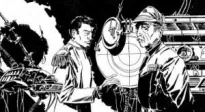Five Passengers from Lisbon
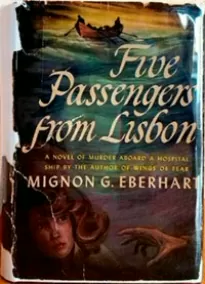
- Автор: Mignon Eberhart
- Жанр: Детективы
Читать книгу "Five Passengers from Lisbon" полностью
20
But Mickey was dead.
He had once come to her cabin, masked and fearfully anonymous, like that, but he was dead.
And the patient—the real patient, what was his name?— what could he want of her?
As if it were the most important thing in life just then she sought frantically for his name and remembered it. Jacob Heinzer, Jacob Heinzer. What could he want of her?
The whisper had stopped.
There was a listening quality in the silence. And then she was listening too, every nerve in her body strained to hear, for there were shouts from the fog, shouts from the darkness and the black sea, shouts of men who had found something.
It sounded as if they said: "Found—found . . ." So it rang and echoed bewilderingly. Perhaps actually it was what they shouted, from boat to boat. At any rate, from that, from a sudden commotion on the decks, from the play of lights and the chug of a small boat coming hurriedly back to the ship, she knew that something—a man, Luther, alive or dead?— had been found.
Yet it seemed unimportant; it was part of another world. It had nothing to do with the small, horribly limited, black world around her just then. And clearly in the silence she thought, Mickey said it was a woman. Gili—or Daisy Belle?
If it was Gili, she would fight. If it was Daisy Belle, she would reason with her. If it was the patient, Jacob Heinzer, there was nothing she could do. There was no recourse and no appeal against a terrible, formless anonymity, against as formless and masked a purpose.
She cried, summoning strength and voice and will from desperation: "Daisy Belle, you must listen to me. Daisy Belle ..." Her voice was unexpectedly loud, strained and harsh and clear in the small space around her.
Daisy Belle did not answer.
If it was the patient, the mysterious Jacob Heinzer, then he did not move.
If it was Gili . . .
Suddenly, and as clearly almost as her own voice sounded upon her ears, an intangible but positive emptiness sounded upon her senses.
She had heard no move. If the door had opened upon the lighted corridor outside she had not seen it.
But the sense of emptiness, of being alone in the small space pressed harder and harder upon her. It was so convincing in a queer and primitive way that her breath of its own accord began to come more freely, her heart seemed to resume beating. She knew that she was alone.
The echoes from the sea were less loud. The small boat had chugged rapidly around, probably to the other side of the ship. Had they found him? Was he still alive?
The question touched her mind, but merely touched it. Mainly she was questioning the statements of her own nerves and awareness. The door had not opened, the patient (who could not be the patient; who could not be Jacob Heinzer) had not opened the door and walked out—or had he?
Perhaps he had gone while she, distracted by the hollow echoing shouts and commotion had turned instinctively to look at the port. But had she turned?
If it was Daisy Belle, if it was Gili . . .
But she was perfectly positive and certain nobody was then in the cabin.
And there was something she'd been about to do. There was something that she must do. She'd been reaching for her coat; she'd been going to Daisy Belle. As she thought that, suddenly the door swung open and Josh's figure was outlined against the light of the corridor. "Marcia . . ." he cried. "Marcia . . ."
The light streamed into the cabin. Nobody else was there, but she still could not move. She said stiffly: "Turn on the light —beside you—there by the door."
"Marcia, they've found him. He's still alive. They've found him. . . ." He snapped on the light and she blinked and looked. Only she and Josh stood in the lighted small cabin. Josh came quickly to her. "It's all true, Marcia. Don't look so—so white and terrified, my darling. Everything is all right now."
"Everything ..."
"My darling . . ."He put his arm around her and made her sit beside him on the edge of the bunk again and said: "The Captain and Colonel Wells talked to Urdiola again. They think he may be telling the truth. And—Marcia, listen, why would Mickey Banet say that it was a woman who killed him? I mean—if it wasn't a woman, if it really was a man, why would he say it was a woman? Unless," said Josh, "he wanted to protect that man."
"Josh . . ."
But he swept on excitedly, talking rapidly. "And why would he protect the man who killed him unless he wanted something from him?"
This caught her attention. "But Mickey was dying. . . ."
"No, that's it. He was dying, but he didn't know it; he didn't think so; he was under drugs; he had a false sense of security; he thought he was going to live. He tried to protect whoever it was that killed him. Exactly as he did when I hit him, and he didn't know who it was that hit him, but he knew damn well it was somebody. Yet he came out with that vague story about having slipped or fainted. No, we ought to have known then that it was somebody whose life and whose continued life was important to Banet. And Gili all but told us. . . . Only she didn't know she was telling us. She knew that he had almost in so many words told her to keep quiet. Perhaps she suspected why, but she won't admit it if she did. We ought to have known it all along. There were only you and Gili and Daisy Belle and Luther Cates and the mysterious patient ..."
"Josh," she cried, "he was here! He went away just before you came. . . ."
"Here!" He jumped up. "Here! What do you mean?"
She told him quickly.
He stood, however, for a long moment without speaking. And then suddenly began to speak in a queerly measured and deliberate way.
"Mickey," he said, "hoped to make a living for the rest of his life. Gili, when she told him what she and Castiogne had overheard, provided him the way. That, you see, is why he was through with you. There was a way which he suddenly discovered by which he could get much more money than you could supply. Much more . . ."
She did not understand him. She did not understand the listening look on his face. It was as if he were talking not to her but to somebody else. Somebody invisible, who was not there, and yet might hear him. He went on: "Castiogne hoped to do that, too, with a diamond and a promise. He was fobbed off. Para was Castiogne's confidant and partner; he was in on the same unhealthy enterprise. He was afraid. He knew what had happened to Castiogne, so he gave Urdiola the diamond to keep for him to send his wife. He knew he was in danger, but he had by then another partner and that partner was Mickey Banet, who had invited himself into the game and was going to stay in."
He looked at the door of the little bathroom and said: "Come out. . . ."
There was no one there; the patient had gone—only he hadn't. Unbelievably the narrow gray door swung slowly open.
A red, thin figure, masked in white, stood in the doorway.
Josh said gravely: "It's all over. You haven't got a chance. They found him and got him back; he's still alive. He told them exactly what happened—how he'd slipped out on deck and you came along and offered him a cigarette and, as he took it, slugged him. The next thing he knew he was in the water—swimming, floating, swimming. It was sheer luck for him that one of the boys in the ward heard the splash and gave the alarm—sheer luck, that he was found. But bad luck for you."
The figure did not move. The eyeless face stared inscrutably and blankly at them. Josh said: "Everything is known. You must have heard me. What exactly did you do for the Nazis? Or rather," said Josh, "how much money did you turn over to them? And why? Because you thought they were going to win? Because it was easier? Because you didn't care about anything but your own immediate safety? Why?"
There was a sort of whisper from the tall figure. Then it swayed a little queerly. But everything swayed and vibrated actually. The ship was moving again, gathering speed, steady upon her course.
Josh said: "Take off the bandages."
A hoarse, strained whisper was intelligible: "My face—no, no . . ." The hands made gestures. Josh said: "You're not Jacob Heinzer. He's still alive. They got him out of the water. He'll testify against you. You're Luther Cates."
The engines were going harder. The familiar motions and creaks of the ship were louder. Josh said: "Why did you come to this cabin? How did you do it? Why?"
Luther's voice from those bandages said wearily: "I came to see Daisy Belle. I did not intend to hurt Marcia. I didn't intend to touch her. I only wanted to talk to Daisy Belle. I thought she'd be here in this cabin. I didn't know that only Marcia was here. I was alone in my cabin. I thought with all the tumult on deck I could get here, without being seen, and I did. I had the gauze hidden under a cushion in the officers' lounge. Nobody thought of looking there. I took it from a dressing tray. I had seen Heinzer. I had to disguise myself like that in order to approach Para, for he knew I'd killed Castiogne and he knew I'd kill him if I could. But I didn't come here to kill Marcia. I thought Daisy Belle was in this cabin and that perhaps I could speak to her alone. I had to tell her my plans. I had to, and then I heard them shout from the boats out there that they'd found him—Heinzer. So I knew then there was no escape for me. I couldn't leave this cabin. I couldn't . . ."
Josh said: "You'd better get to a doctor . . ." and suddenly sprang forward as the thin, red figure wavered and crumpled against the door.
"Get the doctor, Marcia—hurry—go on . . ."
She thought, even then, that Josh wanted to save her the thing that he knew was going to happen.
Luther Cates had a bad heart attack. He lived until the day came fully. He did not make any further statement.
It was not necessary.
A few hours later replies to wirelessed inquiries which the Captain had sent began to clatter into the ship's receiving sets. All the money that Luther Cates with his great wealth had banked in Switzerland before the war was gone. It had gone without any question to the Nazi cause.
Daisy Belle had not known it. She had not dreamed that Luther's own collaboration had been so expensive, so positive, and so appalling.
"My own," she said brokenly to the Captain, "seemed so great. It was as if we shared a dreadful burden of guilt. I never dreamed that there was anything worse. So much worse. I knew that there was a shortage of cash; we used my jewels for everything. I didn't know why. I thought it had something to do with war conditions, with getting funds . . ." She stopped, and after a moment continued very slowly: "I think he did it because—well, simply because it was easier. He had the money, so it was available. They wanted it, perhaps they brought pressure." She paused again and said wearily: "I don't think Luther was politically a Nazi, but I—it is very difficult for me to say this, but it must be true—I think he thought they were going to win. I think it was"—her voice choked over the words but she repeated it—"it was easier. We were among Nazis. They knew about the money. He bought our freedom and comfort."
The Captain said: "The diamond he gave Castiogne was not a passage bribe, then?"
She had thought the whole thing through. She said steadily: "I think it was the first payment for silence to Castiogne. Luther came to me on the
Gili had been questioned. Gili still said that she didn't know.
She had admitted, however, that when she had talked of the thing, accusing the Cateses, there in Mickey's cabin, the first night on the
He had tried, too, to insure that Marcia kept the, to him, potentially valuable secret about the Cateses by playing on her loyalty to Daisy Belle. "An accusation like that is a very unpleasant one," he had said. "It sticks. Never tell anybody." And Marcia had been only too glad to agree.
Josh said, now, thoughtfully: "Gili told him what she'd heard, and what she thought Castiogne would do with the knowledge of the Cateses which Castiogne and Gili so unexpectedly shared. To Banet it was like the discovery of a gold mine. Banet did not tell Gili his immediate realization of that. Instead, knowing that Castiogne already knew, he suggested to Castiogne that they become partners. Castiogne had to agree. But Castiogne must have already confided in Para. Perhaps Para was to be the strong man. At any rate, as Urdiola says, Castiogne and Para were close friends. I think that Castiogne had not told Mickey that Para was already his partner. I don't think Mickey knew or guessed that until the diamond was found; perhaps he never knew it. But Para knew that Mickey was one of them and told Cates, later, on the
Colonel Wells said: "He might have succeeded in passing himself off as Jacob Heinzer, at least until they got him to the hospital and got the bandages off, and if he were very lucky."
"You can't escape on a ship," said Captain Svendsen. "You can on dry land—once he got ashore and at a hospital he must have thought he could contrive some way to escape. Yes . . ."
"If he had sat tight and said nothing . . ." began Colonel Wells reflectively, and the Captain interrupted: "If he'd sat tight and said nothing he'd never have got away. He knew it. So the chance he took in trying to take Heinzer's place was, at least, a chance. Otherwise, as Luther Cates, he had no chance. We'd have kept after them, all of them, until the truth came out about the money. Cates was vulnerable and knew it. And he was on deck and Heinzer came along and suddenly there was a chance. And he seized it. He would do away with Heinzer, assume his place, stay in the patient's cabin perhaps, make himself as inconspicuous as possible for the rest of the voyage, and try to leave the ship as Heinzer and eventually to escape the hospital. Luther Cates had to be dead. There," said the Captain heavily, "was his one small chance and he took it. Otherwise he had none. And it might have worked if he were adroit enough, careful enough. Heinzer's face was hidden; his voice was a broken, gasping whisper; he was ambulatory and thus had no special care and Cates, in assuming the patient's identity, would not have been under the close observation by nurses and doctors that a litter case, say, would have been under. Once on land, once at the hospital, he must have hoped for a chance to escape. Well," he took up a thick sheaf of papers from his table and said—"here is my report to my superiors. I wish you to listen and, insofar as you can do so, verify the details."
He read in a precise, deliberate way. The succinct phrases took on a quality of fate and of irrevocability. ". . . and on perceiving a distress signal we changed our course. . . . Eight passengers in a lifeboat from the S.S.
The grim and twisted strands of the story picked themselves out, stripped of anything but fact. "Luther Cates having been secretly a Nazi collaborator in a very important way, killed Alfred Castiogne because the latter had accidentally discovered Cates' collaboration and attempted to blackmail him. Cates did this while in the lifeboat, and, we believe, after he saw that the rescue ship was American and bound for the United States. Unknown at the time to Cates was the fact that Castiogne had already in his scheme two partners. One was Manuel Para, and the other was Michel Banet (see next paragraph for further reference to Michel Banet). Once on board the


